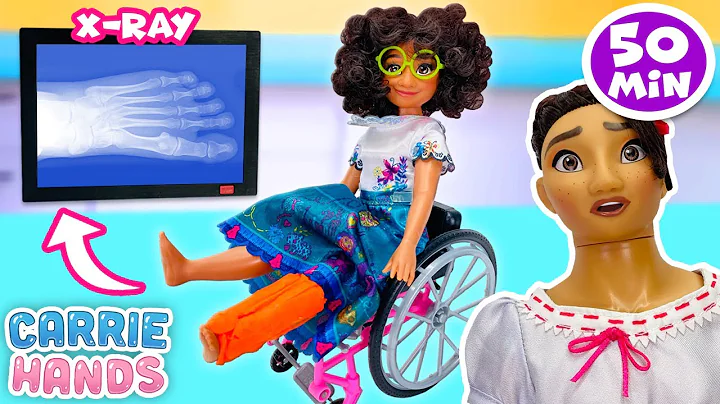When a child sees a toy he likes in the supermarket, it is still not worth leaving. “There are a lot of toys like this at home, I can’t buy any more!” The child bursts into tears and sometimes even rolls around.

It was time to eat, but the child kept shouting for snacks, "How can snacks be used as meals? You are not allowed to eat them. If you eat them again, I won't buy them for you next time." The child cried and fussed, causing him to be depressed during the meal. .
It was past ten o'clock in the evening, and the child refused to go to bed. "If you don't sleep at night, you can't afford it in the morning, so go to bed quickly." However, the child didn't want to sleep because he didn't play enough, so he started crying again
...
I believe the above scene. All mothers know this very well, as if they have pressed the switch of an emotional bomb, which is out of control and aggrieved, making people pitiful. When your child loses control of his emotions, your coercion and condescending scolding will only make him feel helpless. Your accusations, ridicules, and threats will only make your child farther and farther away from you, so that when he encounters When something happens, he never tells his parents.

(1) Why do children cry or make fuss all the time?
If we have a little understanding of children's brain development, we may understand the reasons behind children's emotional out-of-control. Children as young as two or three are on the verge of emotional collapse almost every day. This is because the child's rational brain and emotional brain cannot yet coordinate and cooperate.
In the early childhood stage, children's rationality is not mature yet, the emotional brain is dominant, and children cannot control their emotions rationally.
Before the age of three, the right brain occupies the dominant position. They have not yet had the ability to express feelings using logic and words. Children are prone to emotional breakdown when encountering problems. The "terrible two years old" is a typical state at this stage.

With this basic understanding, when a child loses control of his emotions, we can maintain a calm mind and understand that the child is not "deliberately making his mother unhappy" or "deliberately being ignorant." Children cannot control themselves. They can only cry to express their strong panic. They don't know what is happening, and no one tells them how to take effective measures to deal with this emotion.
(2) Empathize more with your children and ease your emotions
Children cry and make noises. In fact, they don't want to, but they don't know that there is a better way to deal with their emotions, so they can only express them by crying.
We should take this opportunity to get closer to our children, and it is also an opportunity to increase parent-child bonding. Children are on the verge of losing control of their emotions and want more understanding and help from their parents. At this time, "empathy" with the children is a very effective way of communication.

When we communicate with children, we can hug, touch the child's head, or pat the child on the shoulder, give the child some intimate movements, so that the child can feel the comfort and support from the parents, and help the child calm down emotionally first. Then solve the problem.
If parents want to empathize with their children, they must first lower their posture, adjust their mentality, understand the underlying reasons behind their children's crying, truly enter the child's inner world, look at the problems that occur from the child's perspective, and put themselves in their shoes. Think about your children.
For example, Ruibao was very late and still refused to go to bed. His father on the side severely criticized him, "What time is it? I'm still not sleeping. Can you get up tomorrow morning?" "I haven't played enough yet, I still want to read." The child He argued hoarsely. As an old mother, I know that my son has not played enough. To be more precise, I hope that my mother will play with him for a while. I came back too late due to overtime work, so the time I spent reading with my son was shortened. He did Haven't had enough fun yet. "Then let's play for a while, finish reading this book, and then we can sleep together, okay?" The son's mood eased a little. In fact, he himself felt a little sleepy, but he still shouted that he wanted to read more books. Halfway through reading, Ruibao said, "I'm sleepy, go to sleep."
(3) Help children sort out their emotions, identify them, and process them.
When children are in their infancy, they cannot speak. When they are hungry, peeing, or sleepy, they will only cry to express their needs and attract their parents' attention. As they grow older, they are always used to crying to seek attention. The reason The reason is that they cannot recognize emotions, cannot use words to describe emotions, and can only vent their emotions by crying.

How to teach children to deal with emotions?
First, sort out your emotions.
For example, when a child loses control of his emotions, we help the child state what happened and shift the child's attention to the details of the matter.
For example, when you see a toy you like, you won’t leave it and insist on buying it. However, there are many same toys at home and there is no need to buy more, so you keep crying. At this time, we first help the child describe what happened and how he felt at this time, "You are very sad when you can't get the toy you like, right?"

Second, identify emotions.
Your mood at this time is sad, sad, and unhappy. In the future, when he encounters something he is unwilling or unhappy about, he will use words to describe the emotion at that time, instead of just crying. Express. Using language and words to explain emotions allows them to use both the "narrative logic right brain" and the "emotional left brain", strengthening the connection between the children's left and right brains.
The process of teaching children to identify emotions is actually to stand from the child's perspective and use empathy to help children resolve their emotions. When we express their true feelings, the children will also feel the attention from their parents and know that their parents understand. Mine, love mine.
Third, encourage children to express their emotions in words.
Encourage children to calmly describe their feelings when encountering something they are unhappy with, express these emotions in words, and describe the cause and process of the incident. Parents must not judge, just be a careful listener. Explanation itself is also a form of healing. When children lose control of their emotions, parents can first help tell stories, describing what happened, why they cried, and how to express themselves when encountering similar situations in the future. The more analysis they do, the more children will naturally express their emotions in this way. .

When a child loses control of his emotions, he needs help more than blame. The child is also experiencing struggles and storms in his heart. Rather than letting emotions collapse in them, it is better to detach and see it as an opportunity to help children integrate their brains.





















